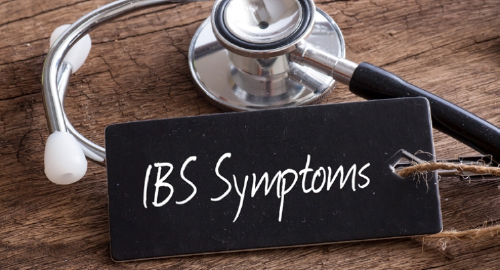Source: bsmmu.edu.bd Jul 01, 2018 7 years, 5 months, 6 days, 4 hours, 5 minutes ago
Use of Bio-Kult led to a 69% decrease in abdominal pain, and improved Quality of Life scores.
Results of a new clinical trial confirm the use of Bio - Kult a multi-strain probiotic formula with 14 bacterial strains and 8 billion colony-forming units per day—is safe and superior to placebo in improving GI symptoms in patients with IBS-D (diarrhea-predominant irritable bowel syndrome).
In the largest-ever, double-blind randomized controlled trial of probiotic
supplements in IBS-diarrhea type patients, improvements in symptoms were reported.
In the study of 360 patients with IBS-D, those patients who took the probiotic supplement Bio-Kult reported a 69% decrease in abdominal pain, compared to 47% in a group who took a placebo.
The four-month study conducted by the University of Bangabandhu Sheikh Mujib Medical University in Dhaka, Bangladesh also found that the number of patients who rated their symptoms as moderate to severe at the beginning of the study was reduced by 86% in the Bio-Kult group, compared to 52% in those who took a placebo.
A total of 33.7% in the Bio-Kult group reported that all their symptoms had disappeared at the end of the 16 weeks compared to just 12.8% in the placebo group.
In addition to relieving IBS-D symptoms, Bio-Kult was also shown to markedly improve all aspects of Quality of Life (QoL) evaluated using as a 34-point IBS-QoL questionnaire. These included psychological issues such as anxiety about health, depression, lack of enjoyment of life, and feelings of having to avoid stressful situations.
Leading experts say the findings are a significant breakthrough in understanding the role bacteria play not only in physical gut symptoms but also psychological symptoms of IBS.
Dr. Philip Burnet, Associate Professor at Oxford University, a leading expert on the gut microbiome/ brain axis, said that although several symptoms within the IBS-QoL survey in the study were significantly improved after taking probiotic supplements, the reduction in dysphoria (unease or generalized dissatisfaction), and health worries were particularly noteworthy.
“The influence of gut bacteria on the brain is a topical area of research in neuroscience, and the microbiome-gut-brain-axis is considered a potential therapeutic pathway for brain disorders,” said Dr. Burnet. “Using probiotics that influence brain function, (also called ‘psychobiotics’), may, in the future, help alleviate conditions such as depression and anxiety.”
He added, “There is a strong link between depression and IBS and some researchers have suggested that mood disorders themselves may arise from a microbial imbalance within the body.”
Dr. Burnet cited another recent study by the University of Corki which demonstrated that a single-strain probiotic,
B.Longum, reduced depression scores in 22 IBS patients. “The Bio-Kult formulation not only contains
B.Longum, but also several other probiotic strains that have been reported to have psychotropic effects in both mouse models of anxiety an
d depressed mood, and in preliminary human studies.”
Study leader Professor Shamsuddin Ishaque said: “Over a period of 16 weeks Bio-Kult produced statistically significant improvements in all key symptoms of IBD- D compared to placebo, including the severity and frequency of abdominal pain. The magnitude of these changes with Bio-Kult was also very impressive.”
“IBS is a significant problem that decreases quality of life and places an enormous economic burden on
healthcare systems globally. A safe and convenient IBS treatment that is capable of reducing pain by nearly 70%, not to mention completely resolving symptoms in more than a third of patients, demonstrates a profound benefit and holds great promise for this major medical concern,” said Dr. Ashton Harper, Head of Medical Affairs at Protexin Healthcare, makers of Bio-Kult.
https://www.bsmmu.edu.bd
